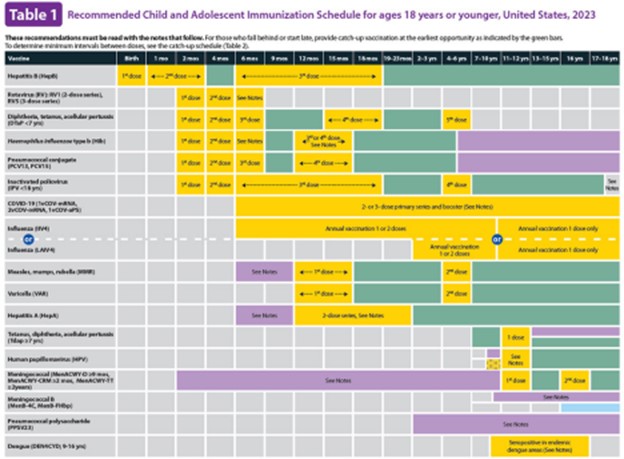A nurse is providing teaching to the parents of a newborn. Which of the following information should the nurse include?
"Your baby should receive the measles, mumps, rubella vaccine at 6 months.
"Your baby will receive the first diphtheria, tetanus, pertussis vaccine at the 2 week well-baby visit
"Your baby should receive the pneumococcal conjugate vaccine on his first birthday."
"Your baby will receive a hepatitis B vaccine prior to discharge
The Correct Answer is D
The hepatitis B vaccine is typically administered to newborns shortly after birth, usually within 24 hours.
The measles, mumps, rubella (MMR) vaccine is typically given between 12 and 15 months of age, not at 6 months.
The first dose of the diphtheria, tetanus, pertussis (DTaP) vaccine is usually given at 2 months of age, not at the 2-week visit.
The pneumococcal conjugate vaccine (PCV) is typically given in a series, starting at 2 months of age, and is completed by the age of 12-15 months. It is not given specifically on the first birthday.

Nursing Test Bank
Naxlex Comprehensive Predictor Exams
Related Questions
Correct Answer is D
Explanation
The hepatitis B vaccine is typically administered to newborns shortly after birth, usually within 24 hours.
The measles, mumps, rubella (MMR) vaccine is typically given between 12 and 15 months of age, not at 6 months.
The first dose of the diphtheria, tetanus, pertussis (DTaP) vaccine is usually given at 2 months of age, not at the 2-week visit.
The pneumococcal conjugate vaccine (PCV) is typically given in a series, starting at 2 months of age, and is completed by the age of 12-15 months. It is not given specifically on the first birthday.

Correct Answer is C
Explanation
A. It’s usually best to build trust and rapport first with non-invasive assessments. Starting with a potentially uncomfortable procedure like looking in the ears may cause distress and make the rest of the exam more difficult.
B.Examining the tympanic membrane before the head and neck might still be too early in the assessment and could cause the child to become uncooperative for subsequent steps. If the child becomes upset, it could complicate the rest of the physical exam, making it harder to complete.
C.Performing the ear examination at the end allows the nurse to build trust and rapport throughout the visit. The child is less likely to become distressed too early in the exam, which helps maintain cooperation for as long as possible.If the child does become upset, it is at the end of the visit, and the more critical assessments have already been completed.
D.If the ear exam causes distress, it may make the child uncooperative for important assessments like auscultating the heart and lungs.
Whether you are a student looking to ace your exams or a practicing nurse seeking to enhance your expertise , our nursing education contents will empower you with the confidence and competence to make a difference in the lives of patients and become a respected leader in the healthcare field.
Visit Naxlex, invest in your future and unlock endless possibilities with our unparalleled nursing education contents today
Report Wrong Answer on the Current Question
Do you disagree with the answer? If yes, what is your expected answer? Explain.
Kindly be descriptive with the issue you are facing.
